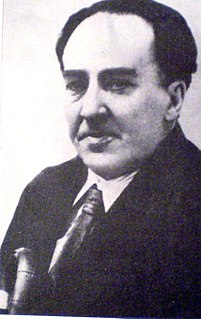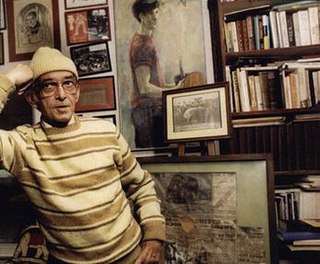A Quote by Epicurus
Death, the most dreaded of evils, is therefore of no concern to us; for while we exist death is not present, and when death is present we no longer exist.
Related Quotes
Whatsoever causes no annoyance when it is present, causes only a groundless pain in the expectation. Death, therefore, the most awful of evils, is nothing to us, seeing that, when we are, death is not come, and, when death is come, we are not. It is nothing, then, either to the living or to the dead, for with the living it is not and the dead exist no longer.
But we are not interested in death at all: rather, we escape the facts, we are continuously escaping the facts. Death is there, and every moment we are dying. Death is not something far away, it is here and now: we are dying. But while we are dying we go on being concerned about life. This concern with life, this over concern with life, is just an escape, just a fear. Death is there, deep inside - growing.
The biblical lifestyle is always a witness of resistance to the status quo in politics, economics, and all society. It is a witness of resurrection from death. Paradoxically, those who embark on the biblical witness constantly risk death - through execution, exile, imprisonment, persecution, defamation, or harassment - at the behest of the rulers of this age. Yet those who do not resist the rulers of the present darkness are consigned to a moral death, the death of their humanness. That, of all the ways of dying, is the most ignominious.
We are left with nothing but death, the irreducible fact of our own mortality. Death after a long illness we can accept with resignation. Even accidental death we can ascribe to fate. But for a man to die of no apparent cause, for a man to die simply because he is a man, brings us so close to the invisible boundary between life and death that we no longer know which side we are on. Life becomes death, and it is as if this death has owned this life all along. Death without warning. Which is to say: life stops. And it can stop at any moment.
Someone's killed 100,000 people. We're almost going, "Well done! You killed 100,000 people? You must get up very early in the morning! I can't even get down the gym. Your diary must look odd: 'Get up in the morning, death, death, death, death, death, death, death - lunch - death, death, death - afternoon tea - death, death, death - quick shower ...' "
If I lived by some code, my actions would become predictable. The enemy would take advantage of this and I’d be killed. An honorable death doesn’t exist. Death is death. But it’s funny that survival and revenge require the same thing: no honor codes, no supposed higher principles to aspire to, no mercy
To begin depriving death of its greatest advantage over us, let us adopt a way clean contrary to that common one; let us deprive death of its strangeness, let us frequent it, let us get used to it; let us have nothing more often in mind than death... We do not know where death awaits us: so let us wait for it everywhere." "To practice death is to practice freedom. A man who has learned how to die has unlearned how to be a slave.



































